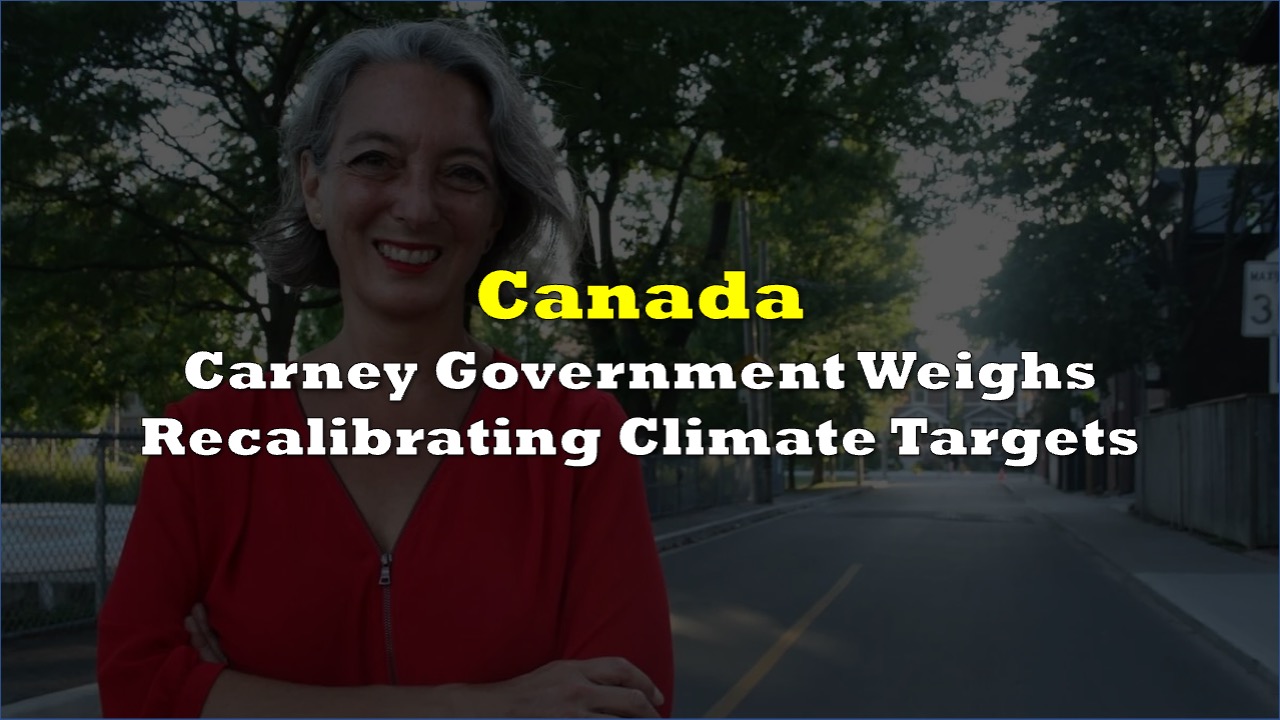Prime Minister Mark Carney’s government is dodging questions about whether Canada can achieve its 2030 climate targets, amid growing concerns about the country’s environmental trajectory.
Asked directly about the Paris Agreement commitments, Environment Minister Julie Dabrusin’s office maintained Canada’s dedication to 2050 net-zero goals but sidestepped the nearer-term deadline. Officials said they plan to release updated emissions plans that account for the current “global and economic context,” according to press secretary Keean Nembhard.
The evasive responses come as Carney has reversed key climate policies within months of taking power. His administration scrapped consumer carbon pricing in March and postponed electric vehicle requirements on Friday.
Pressed by reporters on Monday about adjusting climate commitments, Carney avoided specifics. “We see becoming low-carbon in any industry as being a key driver of competitiveness,” he said. “So that focus on what can we do in order to drive emissions down in a way that makes the country more competitive is crucial.”
Current federal modeling suggests emissions will decline 34-36% by 2030 — well below the Paris Agreement requirement of 40-45% cuts from 2005 baseline levels.
“There’s a lot of things in this world that are uncertain at this time, but I think it’s a safe prediction that we will not meet that target,” said Serge Dupont, a former Natural Resources deputy minister.
Dupont, who now leads public policy at Bennett Jones law firm, argues Canada must “recalibrate its climate target for a new reality” given weakening economic growth and waning public enthusiasm for environmental policies.
Data released in January shows Canada trailing on interim milestones, too, with projected 2026 reductions of just 16% when 20% is needed.
Environmental advocates have condemned the policy reversals. “Carney’s first hundred days show us clearly that he is rolling back climate action at every turn. Scrapping the carbon price, dismantling legislation, cancelling the EV mandate, these are not the decisions of a leader serious about the climate emergency,” Green Party Leader Elizabeth May said Friday.
Analysts estimate removing the carbon tax will cost Canada roughly 7% of its total emissions reductions. The country’s latest inventory showed 2023 emissions had fallen 8.5% below 2005 levels — still far from the decade’s end target.
Related: Canada’s Carbon Tax Cut Shows Full Impact at Pump One Month Later
International climate trackers rate Canada’s current approach as inadequate for limiting global warming to 1.5°C, with policies more aligned with 3°C of heating. The Climate Action Tracker gives Canada an “Insufficient” rating, saying the nation falls short of its “fair-share contributions to climate change.”
Information for this story was found via the sources and companies mentioned. The author has no securities or affiliations related to the organizations discussed. Not a recommendation to buy or sell. Always do additional research and consult a professional before purchasing a security. The author holds no licenses.









